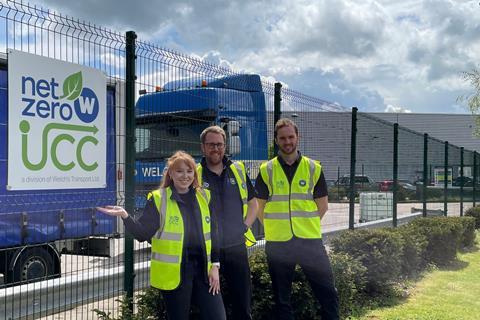Welch’s Transport, a Cambridgeshire-based company, has unveiled Cambridge’s first Net Zero Urban Consolidation Centre (UCC), aiming to contribute to the city’s sustainability objectives.

The UCC will facilitate clean, emissions-free last-mile deliveries and forms a crucial component of Welch’s new Net Zero logistics fulfillment operation, which includes one of the country’s first fully electric trucks.
Leveraging its 89 years of expertise in supply chain management and transportation, Welch’s Transport has established a comprehensive UCC that encompasses warehousing and logistics management facilities. Under this initiative, goods ordered by organisations in Cambridge will be consolidated at the Welch’s depot in Duxford, enabling more efficient last-mile deliveries through the use of smaller, eco-friendly vehicles. By reducing the number of heavy goods vehicles operating in the city center, the UCC has the potential to decrease vehicle trip deliveries by 46 percent, says the company.
“Our aim is to enable organisations in Greater Cambridge to collectively contribute to CO2 emissions reduction. The UCC will minimise delivery vehicle presence in urban areas, resulting in reduced greenhouse gas emissions. This initiative further reinforces our commitment to delivering clean, emission-free last-mile deliveries in the city. With the cooperation of local businesses, we could achieve up to an 88 percent decrease in CO2-EQ emissions per consignment.”, explained Chris Welch, Director of Welch’s Transport.
As part of the company’s broader sustainability efforts in Cambridge, the UCC will be accompanied by a fully electric 19-tonne battery electric truck capable of zero-emissions general haulage, handling pallets, parcels, and hazardous goods.
“The combination of our knowledgeable local drivers, the new electric vehicle, and the Urban Consolidation Centre will revolutionise last-mile deliveries in Greater Cambridge. With the UK’s target of achieving Net Zero by 2050, we are ready to support local organisations, including those in business parks, in meeting their sustainability goals,” Welch added.


















